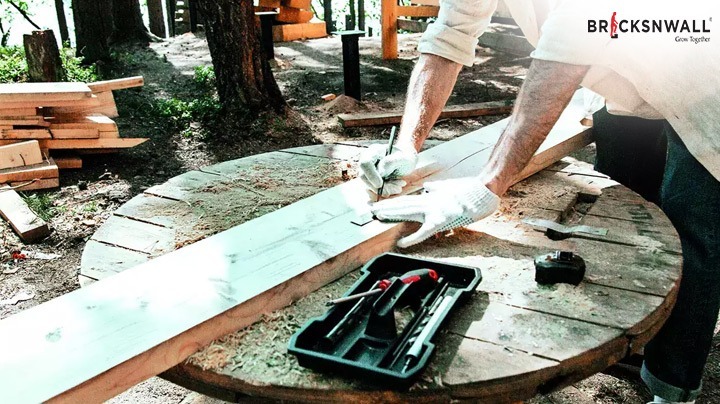What is Snagging and De-Snagging in Apartments?
Koheli

As the real
estate industry continues to expand, the importance of ensuring quality control
in construction projects cannot be overstated. One of the critical stages of
quality control in building projects is snagging and de-snagging.
In this
blog, we will discuss what snagging and de-snagging are and why they are
essential in apartment construction projects.
Snagging
The process
of identifying and listing defects or incomplete work in a building or
apartment that needs to be addressed before it is handed over to the client.
Typically, snagging is carried out by a professional snagging inspector who
walks through the apartment, noting down issues such as structural defects,
missing fittings or fixtures, poor finishing, and any other flaws that may
affect the functionality and aesthetics of the property.
Why
is Snagging Important?
Snagging is
necessary to make sure the flat is finished to the required standard and
specifications. Before the property is turned over to the client, it is helpful
to find any problems that might influence its security, practicality, or
appearance. The client is ensured that they will receive a premium home that
lives up to their expectations by detecting and fixing these problems.
De-Snagging
De-snagging
is the process of rectifying the issues identified during the snagging process.
Once the snagging report is prepared, the developer or contractor is
responsible for addressing the identified issues before handing over the
property to the client. De-snagging entails fixing any structural deficiencies,
adding any missing fixtures or fittings, and taking care of any other issues
that might have come up during the snagging process.
Why
is De-Snagging Important
De-snagging
is crucial in ensuring that the client receives a fully functional and
defect-free property. It helps to build the client's trust in the developer or
contractor and the quality of their work. By addressing the issues identified
during the snagging process, the developer or contractor demonstrates their
commitment to providing high-quality construction work and maintaining high
standards of professionalism.
Benefits
of Snagging and De-Snagging:
1.
Ensuring the apartment meets the required standards and specifications.
2.
Identifying and addressing any issues before handing over the property to
the client.
3.
Building trust between the client and the developer or contractor.
4.
Ensuring that the final product is fully functional and defect-free.
5.
Maintaining high standards of professionalism in the construction
industry.
In the real
estate industry, quality control is of utmost importance to ensure that
construction projects meet the required standards and specifications. Snagging
and de-snagging play a crucial role in ensuring that the final product is safe,
functional, and meets the client's expectations.
By
identifying and listing defects during the snagging process, the developer or
contractor can address these issues before handing over the property to the
client. This ensures that the final product meets the required standards and
specifications, and the client receives a high-quality property that is fully
functional and defect-free.
Furthermore,
the de-snagging process helps to build the client's trust in the developer or
contractor and the quality of their work. By demonstrating a commitment to
addressing any issues identified during the snagging process, the developer or
contractor shows professionalism and a dedication to providing high-quality
construction work.
Overall, prioritizing quality control in construction projects helps to maintain high standards of professionalism in the real estate industry. It is essential to identify and address any issues during the snagging and de-snagging processes to ensure that the final product meets the required standards and specifications, and the client receives a property that is safe, functional, and defect-free. By doing so, the client is assured of receiving a fully functional and defect-free property that meets their expectations, and the developer or contractor builds trust and maintains high standards of professionalism in the construction industry.




